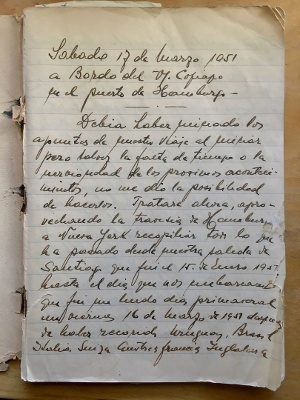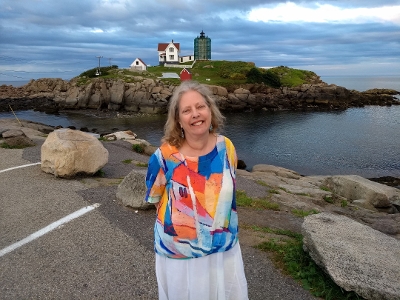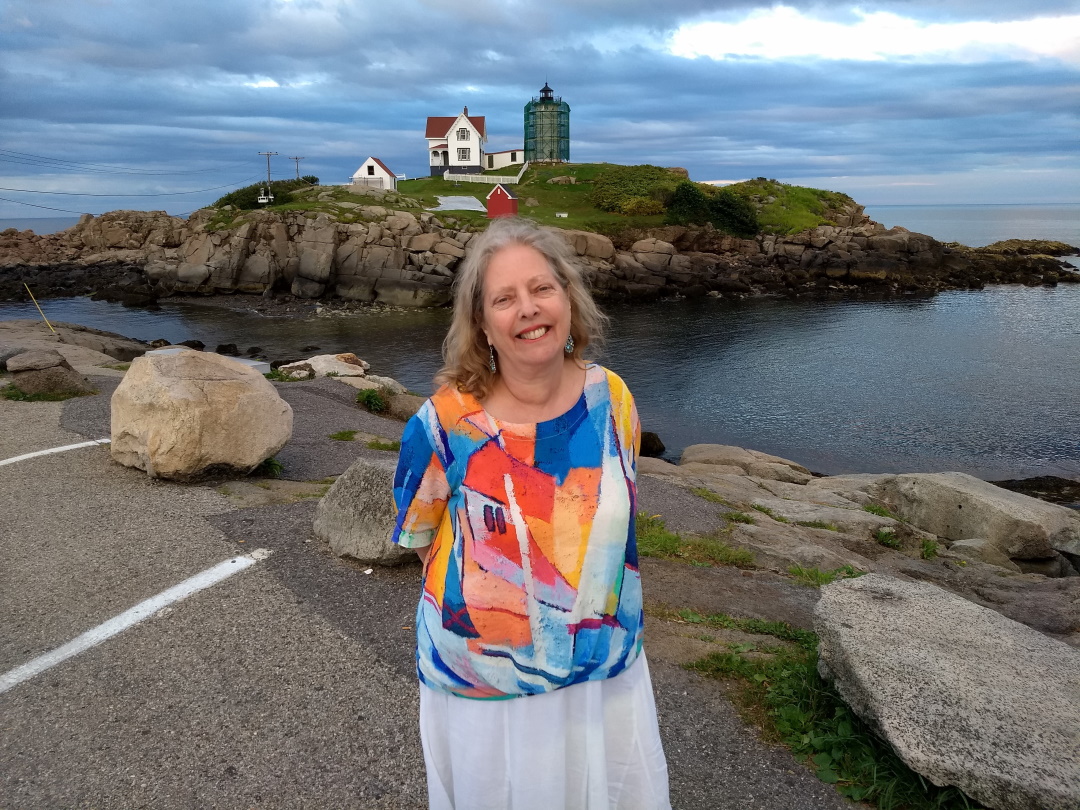Lighting the Candle: The Kindness of Time
The kindness of time allows us to elucidate and inhabit memories from our childhoods that have shaped us into becoming who we are. I have always loved words, their sounds and textures. When I was a young girl, my grandfather Joseph would give me dictionaries and blank notebooks on my birthdays.

A page from one of the author's notebooks. (Photo: John Wiggins.)
The kindness of time allows us to elucidate and inhabit memories from our childhoods that have shaped us into becoming who we are. I have always loved words, their sounds and textures. When I was a young girl, my grandfather Joseph would give me dictionaries and blank notebooks on my birthdays. And on some afternoons when other children played hide and seek, I played with words that appeared to be elegant and difficult to pronounce. In the evenings I would dream about them. And with the passage of time I realized that my calling in life was to become a writer.
My grandfather told me that I should be responsible with my words. The idea that words existed to serve a purpose that should be noble in intent was essential advice.
I grew up in a vibrant home with grandparents and great-grandparents who spoke several languages: German, Yiddish, Ladino, and French. As a child I was surrounded by the beautiful melodies of their voices. I understood that in order to write well I would also need to be attentive to the power of the words themselves. I also discovered how reading had the ability to provide others with new experiences. When I was ten years old, I tutored illiterate women in my neighborhood and witnessed firsthand the joy that learning to read brought them. It gave them awareness of a new world.
This was one of the most important lessons that I understood about words and my responsibility to them. Another thing that brought me closer to the world of literature for children was Chile itself. My homeland provided me with an appreciation for beauty, and it taught me how to name the things I love: the sea, the mountains, and the deserts. Nature has inspired my writings. In the early morning before I begin to write, I am often accompanied by memories of the boundless Pacific Ocean and its mesmerizing power.

Inspired by nature: Marjorie Agosín at Nubble Lighthouse in York, Maine. (Photo: John Wiggins.)
Celeste Marconi, the protagonist of I Lived on Butterfly Hill, my first novel for young readers and the winner of the 2015 Pura Belpré Award, also shares a love for the natural landscape of her native land. She lives in the port city of Valparaíso, with its poorly constructed but brightly painted wooden houses that look like they are going to fall into the sea. When she is sent into exile and becomes a committed activist for social justice, this young girl finds comfort in dreams of her beloved country and of the people she left behind.
By telling Celeste’s story, I wanted to heighten the reader’s awareness of the great spirit of resilience that children possess, of how they seek justice and from a very early age begin to develop an ethical conscience. Some of the most essential things that I had learned in my childhood seem to have resurfaced in books that I have devoted to young people. It is difficult to pinpoint the exact moment when I decided to write for children. Perhaps it was when I received my first dictionary, or maybe it was when I inherited the notebook of my great-grandmother Helena, who began writing about her voyage to Chile in 1939, during the height of Nazism in Europe. When all is said and done, I return to the wise words of my grandfather Joseph, who told me that words must be expressed with responsibility. This is what a writer must do, because young people know when an author is authentic and speaks the truth.
Translated from Spanish by Celeste Kostopulos-Cooperman.
From the May/June 2021 special issue of The Horn Book Magazine: The Pura Belpré Award at 25. Find more in the "Lighting the Candle" series here.

RELATED
ALREADY A SUBSCRIBER? LOG IN
We are currently offering this content for free. Sign up now to activate your personal profile, where you can save articles for future viewing.






Add Comment :-
Be the first reader to comment.
Comment Policy:
Comment should not be empty !!!